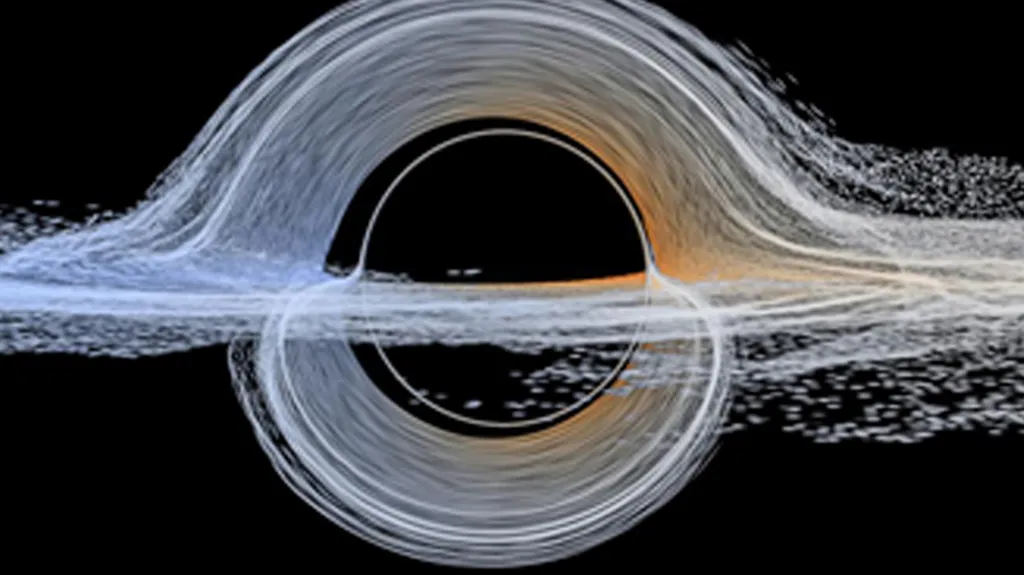In the realm of theoretical physics and energy research, a recent study has explored the potential of extracting energy from a specific type of black hole, known as an electrovacuum black hole. This research, conducted by Filip Hejda, delves into the intricate processes that could make such energy extraction feasible, offering insights that might one day influence the energy sector.
Filip Hejda, a researcher affiliated with the Institute of Physics of the Czech Academy of Sciences, has presented a novel approach to energy extraction from black holes. His work, published in the journal Physical Review D, focuses on the collisional Penrose process and a model of pair creation, where two neutral particles collide to produce two oppositely charged particles. This process, when applied to charged, rotating black holes, could lead to significant energy extraction without the need for fine-tuning or extremality, as long as the escaping particles are sufficiently charged.
The collisional Penrose process is a mechanism by which energy can be extracted from a rotating black hole. In this process, particles collide near the black hole’s event horizon, and under certain conditions, one of the particles can escape with more energy than the original particles had, effectively extracting energy from the black hole. Hejda’s research builds on this process by incorporating the creation of oppositely charged particle pairs, which enhances the energy extraction potential.
One of the key findings of this study is that significant energy extraction is possible without requiring the black hole to be in a highly specific or extreme state. This is a departure from previous assumptions that fine-tuning or extremality was necessary for efficient energy extraction. By demonstrating that sufficiently charged escaping particles can facilitate energy extraction, Hejda’s research opens up new possibilities for harnessing energy from black holes.
While the practical applications of this research in the energy sector are still far from immediate, the theoretical insights are valuable. Understanding the mechanisms of energy extraction from black holes could inspire new approaches to energy generation and storage on Earth. For instance, the principles underlying the collisional Penrose process and pair creation could potentially inform the development of advanced energy technologies that leverage similar physical phenomena.
In summary, Filip Hejda’s research provides a significant contribution to the field of black hole physics and energy extraction. By exploring the collisional Penrose process and pair creation, he has shown that substantial energy extraction is possible without fine-tuning or extremality. This work not only advances our theoretical understanding but also holds promise for future applications in the energy industry. The research was published in Physical Review D, a peer-reviewed journal that covers topics in particle physics, field theory, gravitation, and cosmology.
This article is based on research available at arXiv.

